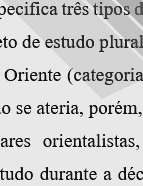

................................
Discursive practices, embodying both individualisation processes of an intellectual and/or militant nature - where the author and leader were the most outstanding figures - and those of a collective nature, stemmed from Marxism as an ideological culture. Among the collective processes, in addition to Avante! [Onward!], the central body of the PCP, there were also editorial initiatives in the late 1930s, such as the periodicals O Diabo [The Devil] and Sol Nascente [Rising Sun], and from the 1940s onwards the journal Vértice [Vertex], not to mention other regional and local titles which, in several cases, preceded these more famous periodicals (Trindade, O espírito do diabo [The devil’s spirit], 2004; Pita, Conflito e unidade no neo-realismo [Conflict and unity in neo-realism], 2002; Andrade, Utopia, intelectuais e comunismo [Utopia, intellectuals and communism], 2010; Dias, O "Vértice" de uma renovação cultural [The “Vertex” of a cultural renewal], 2012). All these publications were subject to the censorship that remained in force until the fall of the Estado Novo, which also conditioned various informal and formal encounters - through lectures, conferences, colloquia, and meetings of a public, semi-public or clandestine nature - during which, Marxism nonetheless advanced on its course.
Mathematics, philosophy, painting, agriculture, science and sport were among the subjects under consideration by the Marxists, as well as several others including history, in whose research and writing a number of Marxists were engaged. The importance of the study of the past for Marxism may be underlined at two levels. First, such study participated in the formation of Marxism as a specific ideological tradition - that is, just as Marxists proposed new forms of political and artistic practice, they also advocated new ways of practising historiographical activity, the latter constituting a breeding ground for a Marxist way of being sensitive to reality and of producing meaning from it. Second, the study of the past guided the political intervention of Marxists, to the extent that the knowledge produced by Marxist historiography was, at times, mobilised to certify the validity of specific strategic undertakings and to disavow others.
The encounter between Marxism and historiography in Portugal has received little attention from current historians. This may be due to several circumstances, from the lesser relevance of Marxism in today's political-ideological and academic landscape to the general tendency among historians to subject historiography itself to historiographical analysis and criticism.
